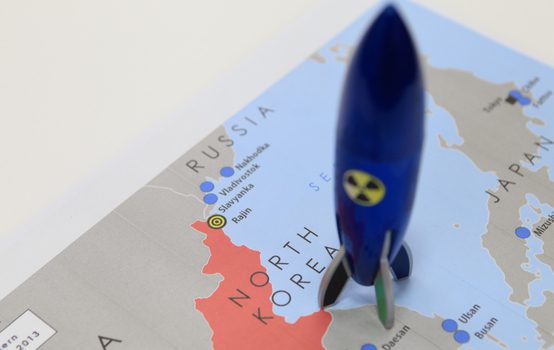We Must Reject Preventive War in Korea
By
Kori Schake observes how similar Trump administration statements about North Korea are to statements from Bush administration officials when they were arguing for the invasion of Iraq. She concludes:
One area in which the Trump administration differs from Bush in 2003 is that President Bush invested his political capital in making the administration’s case to the American public and internationally. Neither President Trump nor his Cabinet have done anywhere near the kind of spadework necessary to bring Americans along for a war that will require calling up reserve military forces, kill tens if not hundreds of thousands of South Koreans, reshape how the world views America, and consume all the political energy of the Trump presidency.President Trump was derisive about the Bush administration’s mistakes in the Iraq war; it would be doubly tragic for him to repeat them. If the Trump administration isn’t re-examining their assumptions, they desperately need to be. They’re lurching arrogantly toward disaster.
The two most striking similarities between Bush-era rhetoric about Iraq and the current administration’s public claims about North Korea are the emphasis on the irrationality of their government and the insistence that deterrence cannot work. Both were nonsense when Bush and his allies said these things about Saddam Hussein and his government, and both are nonsense when applied to the North Korean regime. Just as the Iraqi government was contained and could be deterred, so, too, the North Korean government is contained and can be deterred. The North Korean government is primarily interested in self-preservation, and it is for this reason that they have acquired their own deterrent. The repeated denials of these obvious facts by top administration officials, including both the president and his National Security Advisor, are very alarming, and they are all the more so because it makes no sense to abandon deterrence in this case.
North Korea has been deterred for more than sixty years, and nothing has happened in the last few years that would make deterrence any less effective than it has been for all that time. To abandon deterrence for preventive war in Korea is to give up on a policy that has succeeded for over half a century in maintaining peace and security for one that is guaranteed to devastate the region. Attacking North Korea would very likely precipitate a nuclear exchange or at the very least cause the North Korean government to use its nuclear weapons on South Korea, Japan, and probably on the U.S. as well. Millions of people at a minimum would perish, and all of it would have been entirely unnecessary and avoidable.
The Bush administration presided over a costly disaster in Iraq by waging a preventive war that it didn’t have to start. It would be even worse for a later administration to repeat that error on a much larger scale against an adversary that can inflict enormous damage on the U.S. and our allies. The costs of a new war in Korea would be much higher than the unacceptable costs of the Iraq war, and starting such a war would make the U.S. an international pariah to a much greater extent than anything we have seen in at least the last forty years.
It is hard to believe that we are once again being presented with a push for illegal preventive war so soon after the Iraq debacle. Unfortunately, thanks to the irresponsible rhetoric of administration officials, the unrealistic goal of our North Korea policy, and the dangerously militaristic approach to the issue that the president has taken to date, the U.S. finds itself being led towards a major war that would be a catastrophe for all involved. It is imperative that Congress and the public strongly oppose any proposed attack on North Korea. Preventive war in Korea would be wrong and illegal, and it would have disastrous consequences. Americans must absolutely reject it.
http://www.theamericanconservative.com/larison/we-must-reject-preventive-war-in-korea/


0 Comments:
Post a Comment
Subscribe to Post Comments [Atom]
<< Home